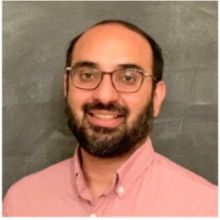CHBE Spring 2024 Seminar Series: Aly Azeem Khan
The Department of Chemical and Biological Engineering presents its spring 2024 seminar series featuring guest speaker Aly Azeem Khan, assistant professor at the University of Chicago, who will give a presentation on “Artificial Intelligence Genomics and Precision Health.” This seminar is open to the public and will take place on Wednesday, February 14, from 3:15–4:30 p.m. in room 108 of Perlstein Hall.
Abstract
We are at an extraordinary inflection point where high-throughput genomic technologies, such as single-cell RNA sequencing and spatial transcriptomics are converging with the recent innovations in artificial intelligence and computing. This integration is uncovering clinically relevant insights and paving the way for new therapies and diagnostics that promise to enhance human health. This presentation will center on the immune system as a model, illustrating: 1) the application of computational tools for detailed immune system modeling at the single-cell level; and 2) the identification of key biomarkers critical for predicting outcomes in cancer immunotherapy. Moreover, our talk will explore open questions in the field of computational immunology, highlighting areas of ongoing research and future potential.
Bio
Aly A. Khan is an assistant professor at the University of Chicago, with appointments in the Departments of Pathology, Family Medicine, and the college. He develops computational methods to uncover clinically relevant insights about the immune system, translating these into improved diagnostic and therapeutic opportunities for human health. Previously, he was a research faculty member at the Toyota Technological Institute in Chicago, where he established a research program in computational immunology. In addition to his academic research, he has advanced translational science and research at Merck, Genentech, Tempus Labs, and currently 23andMe. Khan earned his Ph.D. in Computational Biology jointly from Cornell University and the Memorial Sloan Kettering Cancer Center. His contributions to computational immunology have been recognized with several honors, notably the National Institutes of Health DP2 NIAID New Innovator Award.


